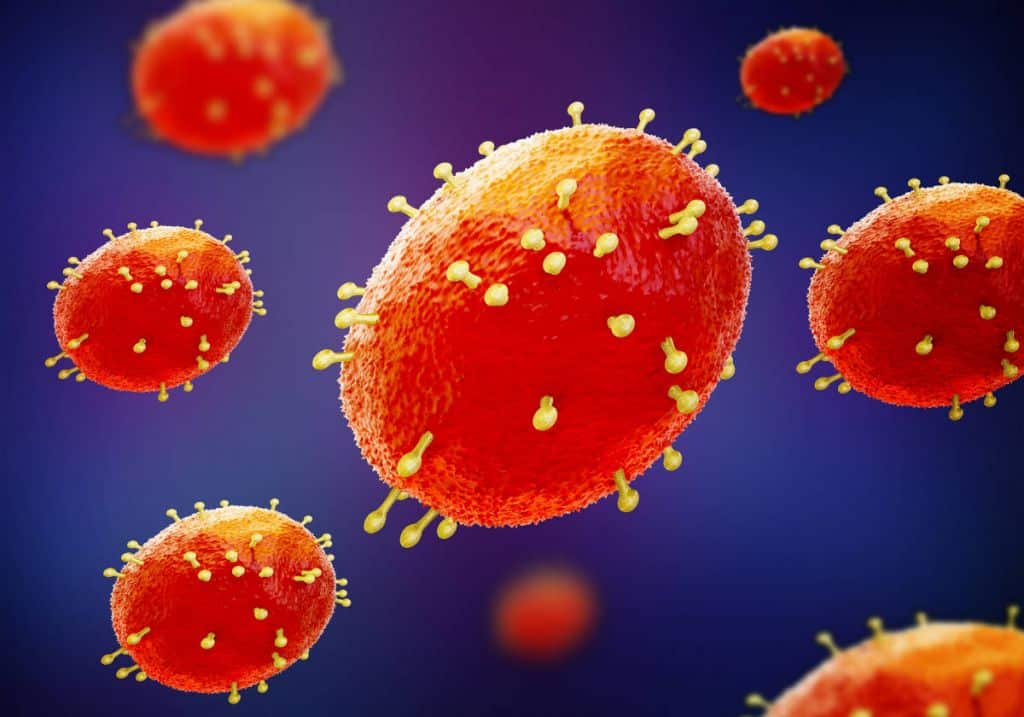Newsletter Signup - Under Article / In Page
"*" indicates required fields
An unusual outbreak of monkeypox is causing concern worldwide in the shadow of the destructive Covid-19 pandemic. Both old and emerging vaccine technology could aid the fight against the outbreak.
In the wake of the world-changing Covid-19 pandemic, the World Health Organization (WHO) is voicing alarm over another unusual outbreak, this time of the viral infection monkeypox.
Monkeypox is endemic to central and west Africa, and common symptoms include headaches, fever, muscle aches, and a rash. The condition is typically mild, but can threaten pregnant women, young children, and people with weakened immune systems. The virus can spread through large respiratory droplets or by coming into close contact with a contagious skin rash.
Since the outbreak was first recorded outside of endemic regions in early May, there have been 131 confirmed monkeypox cases and another 106 suspected cases. The majority of the cases have arisen in Europe, and there are signs the virus is spreading within communities unconnected with travel to the endemic regions.
“Most of the current cases have presented with mild disease symptoms, and for the broader population, the likelihood of spread is very low,” said Andrea Ammon, director of the European Centre for Disease Prevention and Control (ECDC), in a public statement. “However, the likelihood of further spread of the virus through close contact, for example during sexual activities among persons with multiple sexual partners, is considered to be high.”
The first recorded outbreak of monkeypox outside of Africa was in 2003 in the US, and many others have taken place around the world since then. The unusual thing about the recent cases is that they are spreading more widely in the community than expected. The WHO says the outbreak is containable, and is urging its member states to track and control the surge.
While the recent cases are worrying, Michael Head, senior research fellow in global health, University of Southampton, explained to the UK’s Science Media Centre that it’s best not to compare this event to the start of the Covid-19 pandemic. “It’s important to remember they are two different viruses with their own characteristics,” he noted. “A big monkeypox outbreak like this is still a very different situation to a Covid-19 pandemic.”
The monkeypox virus resembles the pathogen behind smallpox, a deadly disease that now exists only in research labs. This means that smallpox vaccines — stockpiled by many nations for decades — can provide protection against monkeypox. One way to clamp down on the outbreak might be to vaccinate close contacts to monkeypox cases in a similar way to how targeted vaccination helped to end an Ebola outbreak in 2020.
The most recent smallpox vaccine — developed by the Danish firm Bavarian Nordic and branded as Jynneos — was approved by the FDA in 2019 as a safer alternative to the existing smallpox vaccine ACAM2000. The US later extended Jynneos’ approval to include monkeypox, and the nation has recently mobilized some of its stockpiles in reaction to the recent outbreak of monkeypox.
The vaccine is also approved to prevent smallpox in the EU under the brand name Imvanex, and has been used off-label to protect from monkeypox. Bavarian Nordic recently landed a smallpox vaccine supply contract with an undisclosed European country to protect against the recent monkeypox outbreak.
“Infection control has been a high priority for societies during Covid-19, and this situation is an unfortunate reminder that we cannot let our guard down, but must continue to build and strengthen our infectious disease preparedness to keep the world open,” stated Paul Chaplin, president and CEO of Bavarian Nordic.
Bavarian Nordic is currently working on a freeze-dried version of its smallpox vaccine that allows it to be stored and transported at higher temperatures than being frozen as a liquid. This could allow the vaccine to reach more regions lacking the proper equipment to store the vaccine.
Meanwhile, the leading Covid-19 vaccine developer Moderna recently revealed it is deploying its messenger RNA vaccine technology for the prevention of monkeypox in preclinical research.
There are no specific treatments for monkeypox, with options for controlling outbreaks including the antivirals cidofovir and brincidofovir. The most recent drug, brincidofovir, was approved by the FDA for the treatment of smallpox in 2021. As concerns churned over the monkeypox outbreak last week, Emergent Biosolutions acquired brincidofovir from the firm Chimerix for $225M upfront. Nonetheless, more evidence is needed to support current strategies.
“It would be useful if this outbreak could be used to produce more conclusive evidence on these products,” said Piero Olliaro, professor of infectious diseases of poverty at the University of Oxford, UK. “Having said that, we must also make sure that these products are made available and affordable to the endemic countries, not stockpiled for use in high-income countries.”
Olliaro added that wealthy nations are only paying attention to monkeypox now that it has broken out in their territory; the virus has been causing epidemics in neglected communities for decades in central and west Africa.
“It is with a certain sense of frustration that we see again the same pattern repeating itself” stated Piero, adding that it is “an example of our collective failure to properly address ‘epidemic preparedness’ and ‘global health’, though they are nominally on top of our agenda with the Covid-19 pandemic.”
Cover image via Shutterstock






